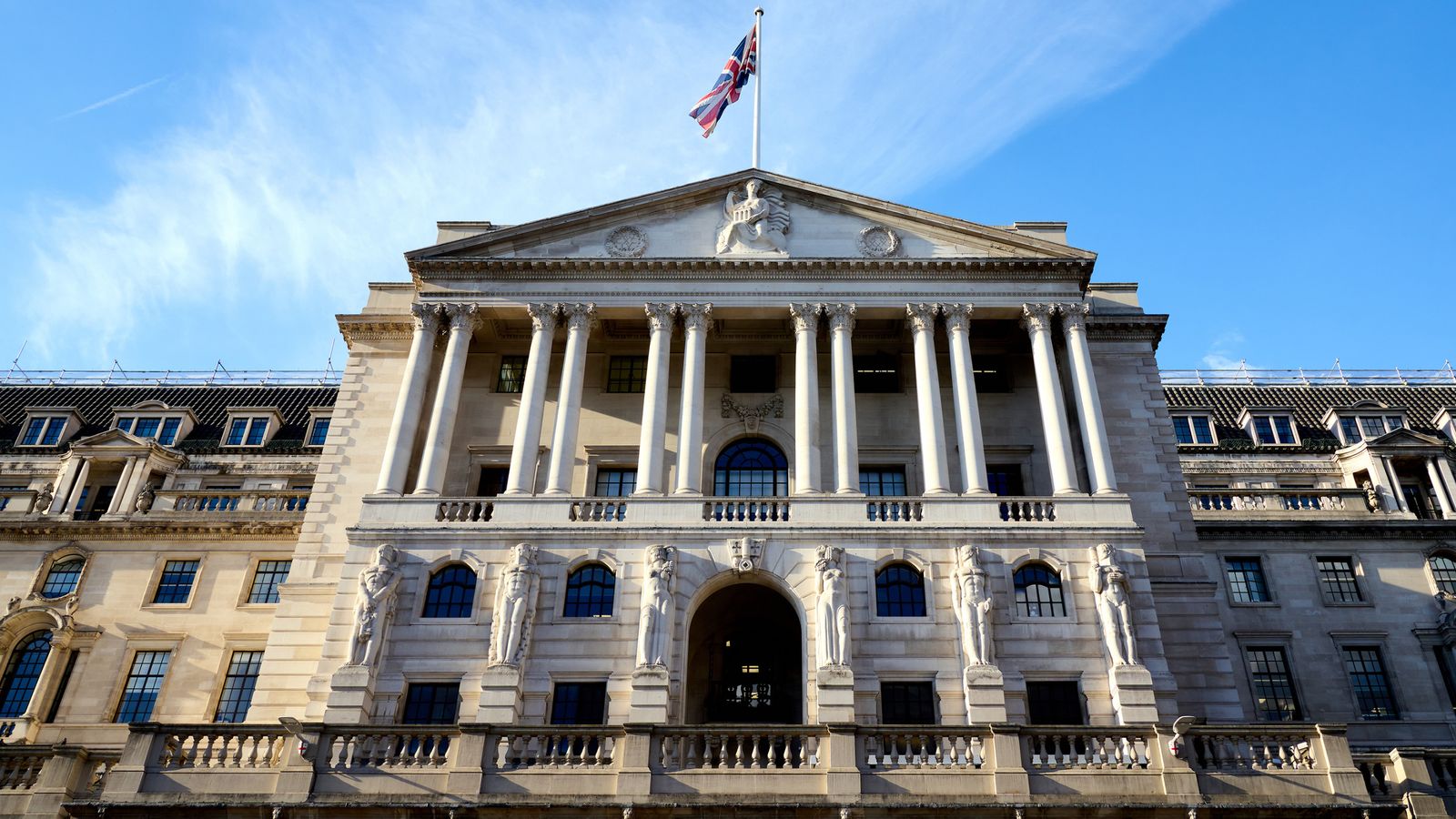Today’s higher-than-expected inflation figure could impact the Bank of England’s next interest rate decision in May.
Yesterday, most economists were predicting there won’t be any more interest rate hikes – however, this was based on expectations of a bigger drop in inflation.
Inflation did actually fall to 10.1% in March from 10.4% the previous month – but economists had largely expected a figure of 9.8% this time.
Matthew Ryan, from global financial services firm Ebury, said: “We believe that this morning’s data has mixed implications.
“On the one hand, sticky inflation raises the possibility that the UK economy could tip into a technical recession in 2023.
“On the other, it more or less guarantees that the Bank of England still has a little way to go in raising interest rates.
“We see another 25bp hike at the May MPC meeting as a foregone conclusion, and we wouldn’t be at all surprised to see another couple more hikes beyond next month’s meeting.”
The MPC is the Bank of England’s Monetary Policy Committee – which sets the Bank rate, the UK’s base interest rate.
“This is ultimately likely to be bullish for the pound, and we continue to see plenty of room for more upside in the UK currency,” Mr Ryan added.
Read more:
Food prices to remain high but good news ahead
When is the next interest rate announcement and how much will it rise?
Samuel Tombs, chief economist at Pantheon Macroeconomics, agreed the latest inflation figures would likely mean further rises in interest rates.
He said: “The drop is too modest for the [Bank of England] to stop raising rates; we now look for a final 25bp hike in May.”
Therefore, he expects the base rate to go up from 4.25% – the current rate – to 4.5% in the next announcement, which is due on 11 May.
Sky’s economics and data editor Ed Conway added: “Less than a month ago investors were betting the Bank of England interest rates would peak at 4.5% – or even 4.25%.
“Now they’re betting they’ll hit 5% this year. The highest projected rate since the mini-budget fallout. Another consequence of unexpectedly high and stubborn inflation.”
Forecasts show interest rates may now peak in September at around 4.9% – before starting to slowly come down.
Interest rates have risen at 11 consecutive meetings since December 2021 in a bid to keep a lid on price pressures in the economy.
While policymakers can do nothing about things like energy costs – the main driver of the inflation crisis – the Bank of England can look to take demand out of the economy by raising borrowing costs.






















